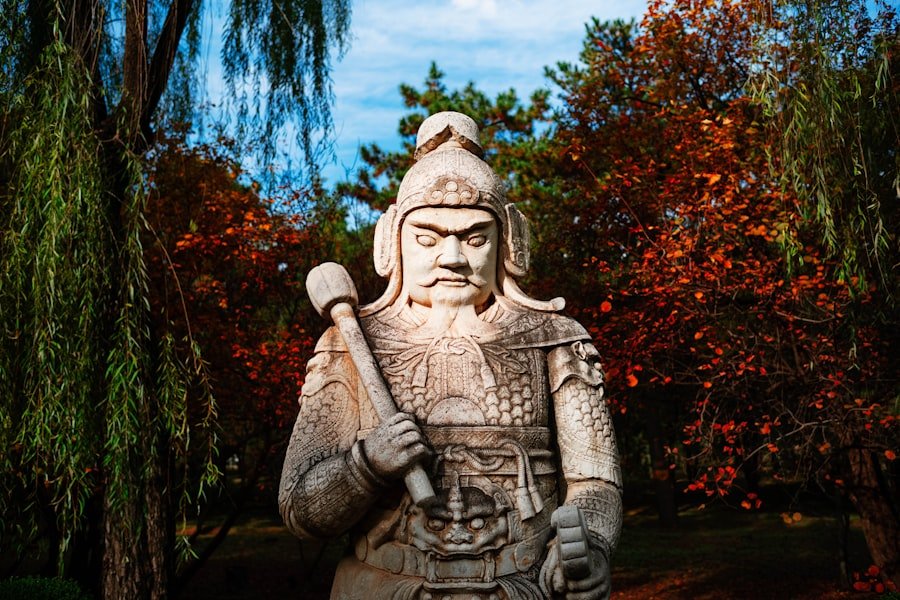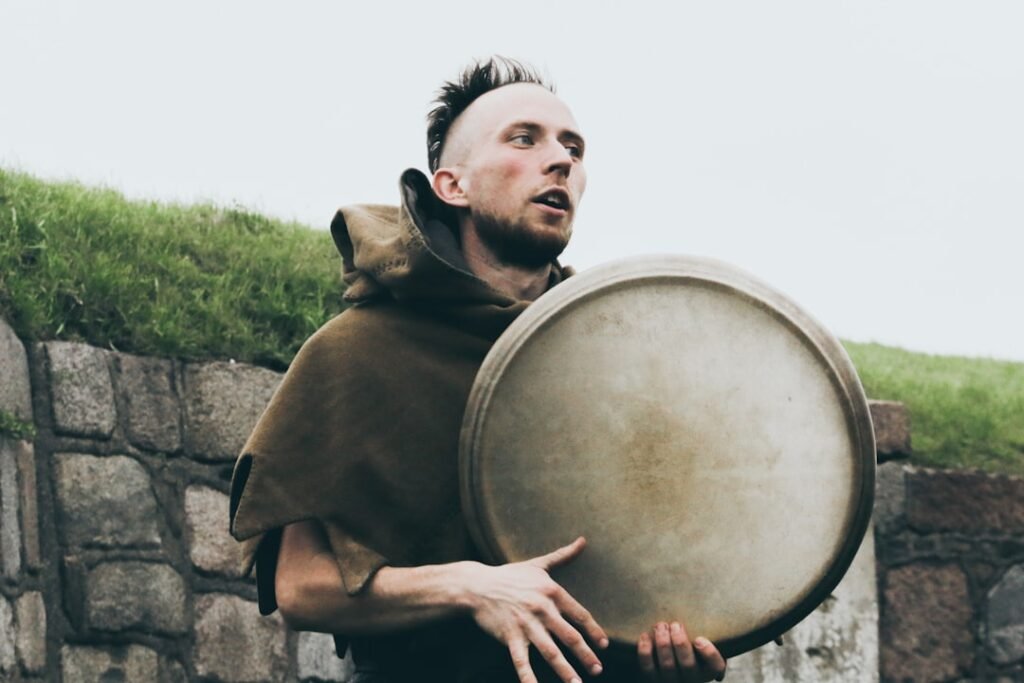Tradition serves as the bedrock of cultural identity, providing a sense of belonging and continuity across generations. In an ever-evolving world, where modernity often overshadows historical practices, the importance of embracing tradition cannot be overstated. It is through the lens of tradition that we can appreciate the values, beliefs, and customs that have shaped our societies.
By honouring our heritage, we not only preserve the wisdom of our ancestors but also foster a deeper understanding of ourselves and our place in the world. In many cultures, traditions are not merely relics of the past; they are living practices that inform contemporary life. They offer guidance on how to navigate the complexities of existence, instilling a sense of purpose and direction.
Embracing tradition allows individuals to connect with their roots, fostering a sense of pride and responsibility towards their cultural legacy. In this context, the scholar-warrior philosophy emerges as a compelling embodiment of tradition, merging intellectual pursuits with martial discipline, thus creating a holistic approach to personal development. Spaces are filling up fast! Register for Chinese classes at the LC Chinese School in Oslo today.
Table of Contents
ToggleSummary
- Embracing tradition is important for preserving cultural heritage and identity.
- The scholar-warrior philosophy emphasises the balance between academic pursuits and martial arts training.
- Oslo plays a crucial role in preserving tradition through its support of scholar-warrior practices.
- Becoming a scholar-warrior requires dedication to both physical and mental discipline.
- Training in martial arts and academic pursuits helps individuals develop a well-rounded skill set.
The Scholar-Warrior Philosophy
The scholar-warrior philosophy is a profound concept that intertwines the realms of intellect and physical prowess. It is rooted in the belief that true strength lies not only in martial skills but also in the pursuit of knowledge and wisdom. This duality reflects an understanding that the mind and body are interconnected; one cannot thrive without the other.
The scholar-warrior embodies the ideal of a well-rounded individual who seeks to cultivate both mental acuity and physical capability, thereby achieving a harmonious balance. Historically, this philosophy has been exemplified by figures such as Confucius and Sun Tzu, who emphasised the importance of education alongside martial training. The scholar-warrior is not merely a fighter; they are a thinker, a strategist, and a leader.
This multifaceted approach encourages individuals to engage with their communities thoughtfully and responsibly, using their skills for the greater good. In today’s fast-paced world, where distractions abound, the scholar-warrior philosophy serves as a reminder of the value of discipline, focus, and lifelong learning.
The Role of Oslo in Preserving Tradition

Oslo, as the capital of Norway, plays a pivotal role in preserving and promoting cultural traditions. The city is a melting pot of diverse influences, where historical practices coexist with modern innovations. This unique blend creates an environment conducive to the flourishing of traditional arts, crafts, and philosophies.
In recent years, Oslo has witnessed a resurgence of interest in various cultural practices, including martial arts and traditional forms of education that align with the scholar-warrior ethos. The city’s commitment to cultural preservation is evident in its numerous institutions dedicated to promoting heritage. Museums, galleries, and cultural centres serve as platforms for showcasing traditional practices while also encouraging dialogue about their relevance in contemporary society.
By fostering an appreciation for tradition, Oslo not only honours its own history but also provides a space for individuals to explore their identities and connect with others who share similar values. This cultural landscape is essential for nurturing the next generation of scholar-warriors who will carry forward these traditions.
The Path to Becoming a Scholar-Warrior
Embarking on the path to becoming a scholar-warrior requires dedication and a willingness to embrace both intellectual and physical challenges. It begins with a commitment to lifelong learning—an understanding that knowledge is an ever-expanding frontier that demands curiosity and perseverance. This journey often involves formal education, self-study, and mentorship from those who have walked the path before.
The pursuit of knowledge is not limited to academic subjects; it encompasses philosophy, history, ethics, and even practical skills that enhance one’s ability to navigate life’s complexities. Equally important is the cultivation of physical discipline through martial arts training. Engaging in martial arts not only develops strength and agility but also instils values such as respect, humility, and resilience.
The rigorous training involved fosters mental fortitude and teaches practitioners how to remain calm under pressure—qualities essential for any scholar-warrior. This dual focus on intellectual growth and physical conditioning creates a well-rounded individual capable of facing challenges with confidence and grace.
Training in Martial Arts and Academic Pursuits
Training in martial arts is an integral component of the scholar-warrior philosophy, providing a practical framework for developing both body and mind. Various martial arts disciplines offer unique approaches to physical training, each with its own set of techniques, philosophies, and histories. Whether it be Kung Fu, Taekwondo, or Brazilian Jiu-Jitsu, practitioners learn not only how to defend themselves but also how to embody the principles of discipline and respect inherent in these arts.
Simultaneously, academic pursuits complement martial training by fostering critical thinking and analytical skills. Engaging with literature, philosophy, and history allows aspiring scholar-warriors to contextualise their experiences within broader narratives. This intellectual engagement enhances their understanding of martial arts as not just physical practice but as a cultural phenomenon rich with meaning.
The interplay between martial training and academic study cultivates individuals who are not only skilled fighters but also thoughtful leaders capable of making informed decisions.
Balancing Physical and Mental Discipline

Achieving balance between physical and mental discipline is crucial for anyone aspiring to embody the scholar-warrior ethos. This balance requires intentional effort and self-awareness; it is not merely about dividing time between training sessions and study hours but about integrating these aspects into a cohesive lifestyle. The practice of mindfulness can play a significant role in this integration, allowing individuals to remain present in both their physical training and academic pursuits.
Mindfulness techniques can enhance focus during martial arts practice while simultaneously improving concentration during study sessions. By cultivating an awareness of one’s thoughts and actions, aspiring scholar-warriors can develop greater control over their responses to challenges—be they physical confrontations or intellectual debates. This holistic approach fosters resilience and adaptability, qualities that are essential for navigating the complexities of modern life while honouring the traditions that shape one’s identity.
The Impact of Scholar-Warriors in Oslo
The presence of scholar-warriors in Oslo has had a profound impact on the community, inspiring others to embrace this philosophy as a means of personal development and social contribution. As role models, these individuals demonstrate how the integration of intellectual pursuits with physical training can lead to well-rounded lives characterised by purpose and integrity. Their commitment to lifelong learning and discipline resonates with those around them, encouraging a culture of respect for tradition while also promoting innovation.
Moreover, scholar-warriors often engage in community initiatives that reflect their values. Whether through teaching martial arts classes or leading educational workshops on cultural heritage, they actively contribute to the enrichment of Oslo’s cultural landscape. This engagement fosters connections among diverse groups within the community, creating spaces for dialogue and collaboration that transcend cultural boundaries.
In this way, scholar-warriors serve as catalysts for positive change, embodying the principles they espouse while inspiring others to follow suit.
Honouring the Legacy of Scholar-Warriors
Honouring the legacy of scholar-warriors involves recognising their contributions to both martial arts and intellectual thought throughout history. By studying their lives and philosophies, contemporary practitioners can gain insights into how these figures navigated their own journeys towards balance and mastery. This exploration not only deepens one’s understanding of martial arts but also highlights the importance of ethical considerations in both combat and scholarship.
In Oslo, various events and workshops dedicated to celebrating this legacy provide opportunities for individuals to engage with the teachings of past scholar-warriors. These gatherings often feature discussions on historical texts, demonstrations of martial techniques, and reflections on how these teachings can be applied in modern contexts. By honouring this legacy, practitioners reaffirm their commitment to upholding the values that define the scholar-warrior ethos while ensuring that these traditions continue to thrive for future generations.
Finding Community and Support in Oslo
Finding community support is essential for anyone on the path to becoming a scholar-warrior. In Oslo, numerous organisations and groups cater to individuals seeking connection with like-minded peers who share similar values and aspirations. These communities provide spaces for collaboration, mentorship, and encouragement—elements that are vital for personal growth.
Martial arts schools often serve as hubs for such communities, where practitioners come together not only to train but also to share knowledge and experiences. These environments foster camaraderie among members who understand the challenges inherent in balancing physical training with academic pursuits. Additionally, community events centred around cultural heritage allow individuals to celebrate their shared traditions while forging lasting friendships that extend beyond the dojo or classroom.
Embracing the Full Tradition in Everyday Life
Embracing the full tradition of being a scholar-warrior extends beyond formal training; it permeates everyday life. This philosophy encourages individuals to integrate principles such as respect, discipline, and continuous learning into all aspects of their existence—be it at home, work, or within their communities. By embodying these values consistently, individuals contribute positively to their surroundings while honouring their heritage.
Practising mindfulness in daily activities can enhance this integration further. Whether it involves being present during conversations or approaching challenges with patience and resilience, these small acts reflect the larger commitment to living as a scholar-warrior. In doing so, individuals not only enrich their own lives but also inspire those around them to consider how they might embrace similar values within their own contexts.
The Future of Scholar-Warriors in Oslo
The future of scholar-warriors in Oslo appears promising as interest in traditional practices continues to grow among younger generations. With increasing awareness about the benefits of integrating physical discipline with intellectual pursuits, more individuals are likely to embark on this path. Educational institutions are beginning to recognise the value of holistic approaches that encompass both mind and body—creating opportunities for aspiring scholar-warriors to thrive.
Moreover, initiatives aimed at preserving cultural heritage are gaining momentum within Oslo’s diverse communities. As more people engage with traditional practices such as martial arts or philosophical study groups, they contribute to a vibrant tapestry that honours past legacies while paving new paths forward. The continued evolution of this philosophy will undoubtedly shape future generations—ensuring that the spirit of the scholar-warrior remains alive in Oslo for years to come.
In this context, it is worth highlighting institutions like LC Chinese School in Oslo that offer Chinese courses designed not only to teach language but also to immerse students in rich cultural traditions associated with Chinese martial arts and philosophy. By providing access to language education intertwined with cultural understanding, LC Chinese School plays an essential role in nurturing future scholar-warriors who will carry forward these invaluable traditions into an increasingly interconnected world.







